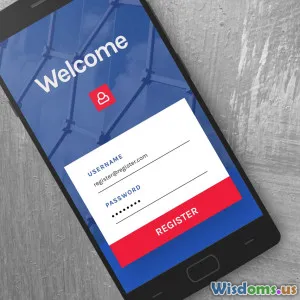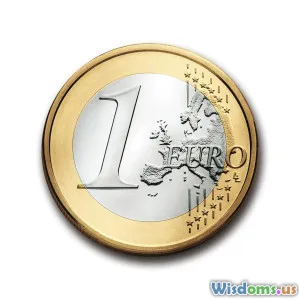
Content Subscription Models What Works for Niche Creators
9 min read Explore effective subscription models that empower niche content creators to build thriving, sustainable audiences and monetize their passion with proven strategies. (0 Reviews)
Content Subscription Models: What Works for Niche Creators
The digital economy has dramatically shifted how creators earn revenue, and subscription models have emerged as one of the most powerful ways for niche content creators to monetize their work sustainably. Unlike ad-driven or one-off sales approaches that often yield inconsistent returns, subscription models provide stability and ongoing engagement — essential for creators working in specialized fields or micro-communities.
In this article, we delve deep into the subscription models that work best for niche creators, exploring how these strategies can be adapted to different audiences, content types, and market dynamics. We’ll cover real-world examples, data-backed insights, and practical tips to help niche creators thrive.
Why Subscription Models Are Ideal for Niche Creators
Niche creators thrive by serving highly engaged, specific audiences rather than mass markets. This specialization brings distinct opportunities and challenges:
- Deep engagement potential: Niche audiences often have a hunger for tailored content not available through mainstream channels.
- Community intimacy: With smaller, passionate groups, creators can cultivate personal relationships that foster loyalty.
- Monetization difficulty: The smaller scale means mass monetization via ads or broad sponsorships is harder.
Subscription models offer solutions by turning those passionate followers into paying members, creating recurring revenue that matches the ongoing value creators provide. According to a 2023 report from Substack, creator subscription platforms saw an average retention rate of up to 75% after six months, far exceeding typical ad-based models.
Key Subscription Models for Niche Creators
1. Tiered Membership Levels
A tiered membership structure offers multiple subscription plans with escalating perks. This approach accommodates different audience segments’ willingness to pay while encouraging upgrades.
Example: The art coach and illustrator Lisa Congdon uses Patreon to offer three membership tiers ranging from $5 to $50 per month. Lower tiers grant access to exclusive video tutorials and PDFs, while the highest tier includes personalized critiques and monthly Q&A calls.
Why it works:
- Diverse audience monetization
- Clear value progression maintains membership growth
- Encourages community building with exclusive content
2. Pay-Per-Content Access
In contrast to fixed subscriptions, pay-per-content allows members to purchase only the specific content pieces they want. This model suits creators whose work doesn’t require ongoing commitment.
Example: In the podcasting world, Luminary provides listeners with a subscription but also lets users buy individual episodes if they prefer. For niche podcasters, combining subscription and pay-per-episode provides flexibility and can increase revenue.
Why it works:
- Appeals to casual fans unwilling to commit
- Provides an additional revenue stream beyond subscriptions
3. Freemium Plus Community Access
Some creators build a free content base but monetize access to premium community features, including forums, live events, and workshops.
Example: The newsletter platform Ghost integrates a membership area where creators can share free writings but restrict community chats or live streams to paying subscribers. Niche writers and thought leaders use this model to foster belonging and monetize engagement.
Why it works:
- Captures wide interest with free content
- Community offers sense of exclusivity
- Drives subscriptions via direct audience interaction
4. Bundled Content and Services
Subscriptions that bundle content with services like coaching, downloadable resources, or merchandise enhance perceived value and revenue opportunities.
Example: Fitness influencer Kayla Itsines bundles workout plans, nutrition guides, and app memberships into a monthly subscription. For fitness niches, combining educational content with personalized tools drives retention and referrals.
Why it works:
- Expands value beyond content alone
- Differentiates the offer in competitive markets
5. Lifetime Memberships and One-Time Payments as Entry Points
Crowdfunding models and platforms like Kickstarter have popularized lifetime memberships, which give upfront capital and a sense of customer commitment. While rarer, these can finance early growth phases.
Why it works:
- Early revenue influx
- Builds loyal supporter base
- Often comes with exclusive perks
Real-World Insights: Four Successful Niche Creators
The Gardening Guru: Roots & Shoots
This small YouTube channel focuses on permaculture and urban gardening. After struggling with ad revenue, the creator switched to a Patreon model with three tiers, offering monthly gardening guides, live Q&As, and a seed exchange program. Within 18 months, monthly income increased 300%, allowing investment in higher-quality production.
The Indie Game Developer: PixelSmith
PixelSmith offers exclusive devlogs, early game demos, and modding tools behind a subscription paywall on their website. By emphasizing community feedback and developer interaction, they turned a small fanbase into a dedicated cohort, stabilizing income during long development cycles.
The Language Tutor: LearnLingua
With thousands of free YouTube lessons, LearnLingua built trust and transitioned select subscribers into tiered memberships with grammar deep-dives, live tutoring sessions, and downloadable exercises. This hybrid model increased average revenue per user by 40% over a year.
The Historical Fiction Writer: Saga Tales
Combining a regular newsletter with serialized stories and behind-the-scenes content, Saga Tales runs a modest but loyal membership on Substack. Readers pay $7 monthly for full access and special editions, ensuring the author's creative freedom and financial support.
Best Practices for Setting Up a Subscription Model
-
Know Your Audience Deeply: Use surveys, direct audience communication, and engagement metrics to understand who truly values your niche and what they want.
-
Start Small, Iterate: Begin with one subscription tier or limited perks, then expand once you know what your audience responds to.
-
Maintain Content Quality and Consistency: Subscribers expect ongoing value; irregular or low-quality content is the fastest way to lose them.
-
Leverage Multiple Platforms: Combining Patreon, a dedicated website, newsletters, and social media integrations increases discoverability and ease of subscription.
-
Engage Your Community: Regular Q&A sessions, polls, and interactive content deepen relationships and enhance retention.
-
Be Transparent and Authentic: Share your challenges and successes openly; audiences value sincerity.
Conclusion
Subscription models represent a transformative opportunity for niche creators eager to build sustainable, rewarding careers in the digital age. By adopting the right subscription structure—whether tiered memberships, pay-per-content, community-enhanced freemium, or bundled services—creators can generate consistent income while deepening bonds with passionate audiences.
The strategies that work best will depend on the creator's unique content, audience behavior, and resources. However, the foundational principle endures: Deliver ongoing, distinctive value that nurtures connection and loyalty.
As the creator economy evolves, those who master subscription models will not just survive but thrive, turning niche passion into lasting impact and income.
Ready to monetize your niche creativity? Consider your audience’s desires, experiment with models, and focus on authentic value to start building your subscriber base today.
Rate the Post
User Reviews
Popular Posts



















